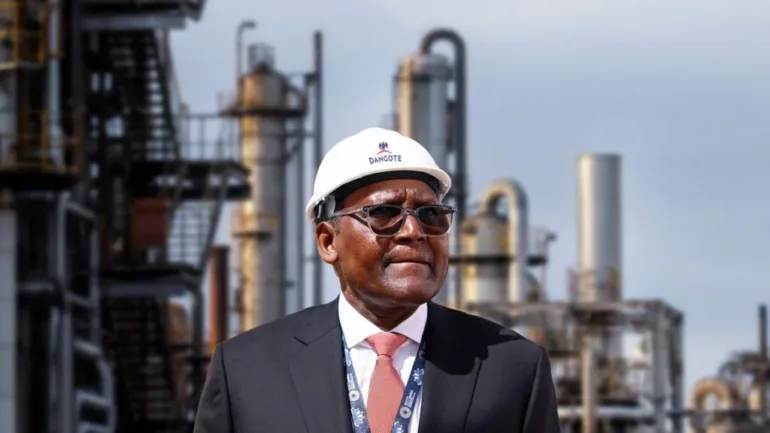The Organisation of the Petroleum Exporting Countries (OPEC) has highlighted that the Dangote Petroleum Refinery’s production of refined products is reducing Nigeria’s reliance on imported petroleum products, particularly from Europe.
In its Monthly Oil Market Report published on January 15, 2025, OPEC noted that the operational ramp-up at the Lagos-based refinery is causing shifts in global gasoline markets. With the refinery’s increasing output, gasoline volumes that would typically have been imported into international markets, particularly Europe, will now need to find alternative destinations.
“The ongoing operational ramp-up at Nigeria’s Dangote refinery and its gasoline exports to the international market are expected to further impact the European gasoline market,” the report stated. “Continued gasoline production in Nigeria, a country that has long depended on imports to meet domestic fuel needs, will likely free up gasoline volumes in global markets, prompting the need for new destination markets and flow adjustments.”
Nigeria, Africa’s most populous nation, has faced persistent energy challenges, with its state-owned refineries being non-operational for decades until recently. The country has heavily relied on imported refined petroleum products, with the state-run NNPC being the main importer. This dependence, combined with poor electricity supply, has led to widespread fuel queues.
Since the removal of the fuel subsidy by President Bola Tinubu in May 2023, petrol prices have surged from around ₦200 per litre to approximately ₦1000 per litre, placing additional strain on Nigerian citizens who rely on petrol to power vehicles and generators.
In December 2023, Aliko Dangote, Africa’s foremost industrialist, launched operations at his $20 billion Dangote refinery in Lagos, which has an initial capacity of 350,000 barrels per day. The refinery is on track to reach its full capacity of 650,000 barrels per day by the end of 2025.
The facility has already started supplying diesel, petrol, and aviation fuel to marketers within the country, signaling a significant shift in Nigeria’s energy landscape.


